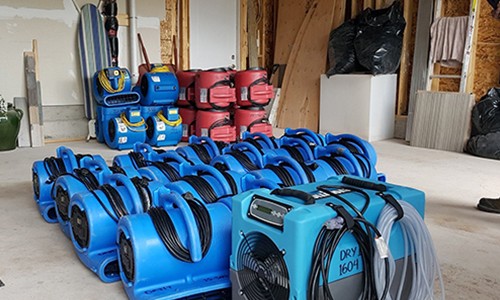
Water Leaks: 8 Of The Most Common Causes
Water leaks can cause severe water damage and unwanted organic mold growth.
Unfortunately, because most of your home’s plumbing is hidden, you may not always be aware that a leak has developed.
Understanding and looking for typical scenarios that cause water leaks is one of the greatest methods to safeguard your house against future leaks.
Broken Seals
All water hookups were sealed by the contractor when your appliances were installed. Seals can also be found in unexpected places, such as on the inside of your dishwasher door. As your appliances get older, the seals on them may break or wear out. You may have a cracked seal if you observe condensation on your appliance or puddles surrounding it.
Clogged Lines
Clogged drains are inconvenient for many people. However, some obstructions can result in overflowing or broken pipes. Obstructions in air handler drain pans or gutters, for example, might cause catastrophic water damage. To avoid catastrophic obstructions, keep your gutters and HVAC system clean.
Corrosion Causes Water Leaks
Rust and other forms of corrosion can eat away at your pipes as your plumbing system ages. If you see discolouration or warping in your pipes, you should contact a plumber straight once to have them inspected.Consider replacing any pipes that are at high risk of corrosion with modern types if you have an older plumbing system. In this way you can protect your house from water leaks.
Damaged Pipe Joints
Where your pipes connect is frequently the weakest point in a line.Pipe couplings can deteriorate over time, resulting in water leaks.Regrettably, the majority of pipe joints are hidden..If your pipes are making a ticking or banging noise, especially when you turn on the hot water, your pipe joints are probably under a lot of pressure. Once a year, have your system inspected by a plumber.
Excess Water Pressure
Although high water pressure feels wonderful, it can put a strain on your pipes if the pressure is too high or unequal. The majority of pipes and faucets can only take a certain amount of water pressure. Any more pressure could result in water leaks. Have your water pressure checked by a professional if you’re concerned.
Intruding Tree Roots Cause Water Leaks
Some of the most common water leaks start outside your home rather than inside. Tree roots, for example, might encroach on water lines, allowing moisture to leak into your yard. Have a plumber check for intrusion if you observe any new wet patches or sinkholes in your yard, notice a sudden decline in water pressure, or have trees growing close to your property.
Loose Water Connectors
The hoses and pipes that supply water to your appliances might become loose at any time, producing a leak. Shifting is a common cause of loose water hookups. Shaking during the spin cycle, for example, could cause a leak in your washing machine hose. You may observe water running directly from the supply line or collecting puddles around the appliance if you have water leaks in your connector.
Rapid Temperature Changes May Cause Water Leaks
Extreme temperature swings in your pipes can cause them to expand and compress unexpectedly. The pipes may crack as a result of this expansion and contraction, especially if the expansion and contraction are driven by cold temperatures. Keep an eye on the way your plumbing works. The existence of the aforementioned variables frequently suggests a significant probability of water leaks.
Water damage, fortunately, is a disaster that may be avoided. A leak detection system can be put inline in any home’s plumbing. Leak detection systems carefully monitor the flow of water through the pipes and turn off the water to your home if any irregularities are detected.
Leak detection can detect flaws before they become a significant source of water damage. If you find yourself in a similar situation, call CPR24 Restoration at (416) 551-8287 for leak detection services.

